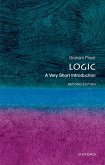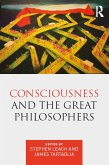Derek Parfit presents the third volume of On What Matters, his landmark work of moral philosophy. Parfit develops further his influential treatment of reasons, normativity, the meaning of moral discourse, and the status of morality. He engages with his critics, and shows the way to resolution of their differences. This volume is partly about what it is for things to matter, in the sense that we all have reasons to care about these things. Much of the book discusses three of the main kinds of meta-ethical theory: Normative Naturalism, Quasi-Realist Expressivism, and Non-Metaphysical Non-Naturalism, which Derek Parfit now calls Non-Realist Cognitivism. This third theory claims that, if we use the word 'reality' in an ontologically weighty sense, irreducibly normative truths have no mysterious or incredible ontological implications. If instead we use 'reality' in a wide sense, according to which all truths are truths about reality, this theory claims that some non-empirically discoverable truths-such as logical, mathematical, modal, and some normative truths-raise no difficult ontological questions. Parfit discusses these theories partly by commenting on the views of some of the contributors to Peter Singer's collection Does Anything Really Matter? Parfit on Objectivity. Though Peter Railton is a Naturalist, he has widened his view by accepting some further claims, and he has suggested that this wider version of Naturalism could be combined with Non-Realist Cognitivism. Parfit argues that Railton is right, since these theories no longer deeply disagree. Though Allan Gibbard is a Quasi-Realist Expressivist, he has suggested that the best version of his view could be combined with Non-Realist Cognitivism. Parfit argues that Gibbard is right, since Gibbard and he now accept the other's main meta-ethical claim. It is rare for three such different philosophical theories to be able to be widened in ways that resolve their deepest disagreements. This happy convergence supports the view that these meta-ethical theories are true. Parfit also discusses the views of several other philosophers, and some other meta-ethical and normative questions.
Dieser Download kann aus rechtlichen Gründen nur mit Rechnungsadresse in A, B, BG, CY, CZ, D, DK, EW, E, FIN, F, GR, HR, H, IRL, I, LT, L, LR, M, NL, PL, P, R, S, SLO, SK ausgeliefert werden.









